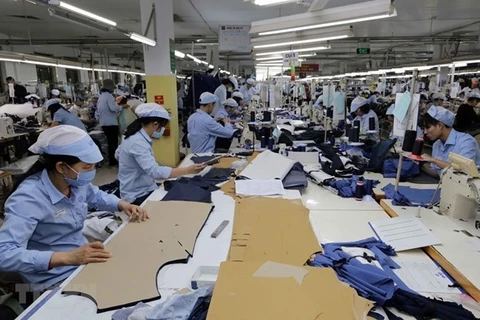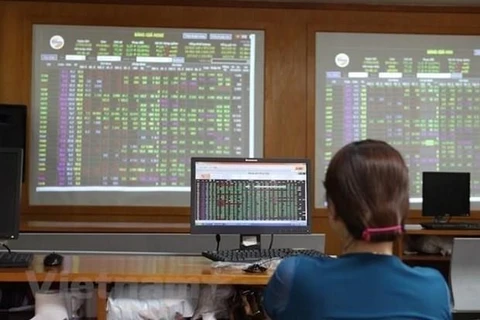Hanoi (VNS/VNA) - Experts have forecast a tough time ahead for the domestic retail, with many store owners struggling to pay rent after being hit hard by the COVID-19 pandemic.
Some stores have shut up shop, and despite a slump in business caused by social distancing, rental costs are predicted to rise, especially in big cities like Hanoi and HCM City.
Nguyen Hoang Tuan, who has owned a convenience store for many years in HCM City, said that landlords often increase rent each year.
“The initial rent is 50 million VND per month. After 4-5 years, this rent would increase to 100 million VND per month,” he told the Thoi bao kinh doanh (Business Times) newspaper.
“If the tenant is not able to pay they must leave. The landlord would offer the rent at 100 million VND per month for the next tenant. That means the rent never stops increasing.”
Economic expert Nguyen Hoang Dung said retailers need to develop a flexible and sustainable multi-channel retail model to avoid closure.
In addition, they should strengthen co-operation with landlords to find solutions during this difficult period, he said.
Hoang Dieu Trang, Savills Vietnam's Senior Manager on Commercial Leasing, said tenants of shophouses have reduced in Hanoi, especially in the busy business areas, after the social distancing because of “supply chain disruption and restructuring of business activities of the tenants.”
The busy business areas, such as downtown Hanoi, Hoan Kiem Lake and the Old Quarter, were often known as having a lack of retail space, however, the pandemic has left almost half of tenants unable to pay their rent.
Control of goods at the border gates with China due to the virus has severely affected the supply of goods for business activities in those areas. Many are finding it almost impossible to continue their business, she said.
Space is an important factor for retailers to compete with others so they try to pay high rent for the retail space until they could not afford it due to revenue reduction, especially retail chains of brands in the food and beverage industry.
A drop in retail sales and footfall in shopping malls as a result of travel restrictions and tightened safe distancing measures have dampened retailer sentiment and leasing activity.
Trang Bui, head of markets at JLL Vietnam, said retailers must prepare to navigate a period of elevated risks to cash flow and increased operational costs arising from a slump in consumer demand and disruption to supply chains.
Due to the COVID-19, some landlords in shopping malls had reduced rental rates by 10-30 percent in February and March, with top priority for general retail groups like food and beverage and entertainment.
Other landlords have considered reducing rent by 10-50 percent, depending on the performance of each tenant. Particularly, one landlord also offered a rent deferment of 30 percent from March to May to the following months in the year when the situation expectedly improves, Trang said.
Although challenges are likely to prevail at least in the short term, there have been some encouraging signs emerging as Vietnam is on the road to recovery.
Some developers are also supporting their retail tenants by providing online ordering and delivery services at their end, taking away the burden of operational costs incurred with using the services.
The ‘new’ operating environment will require landlords and retailers to proactively adjust strategies to meet potential changes in consumer patterns and business practices, including leveraging technologies to enable cashless transactions and online deliveries./.
VNA

























